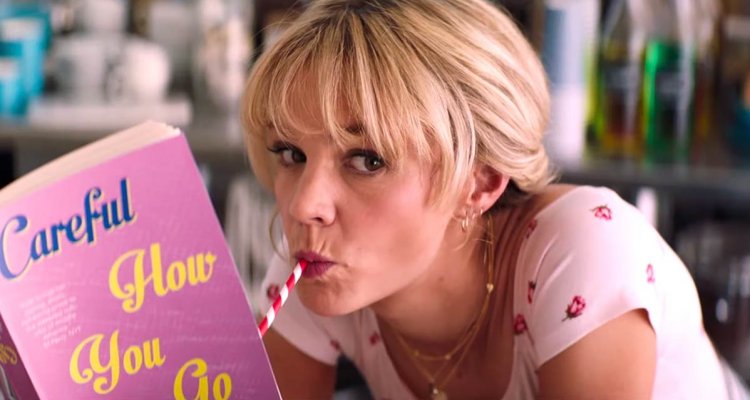There is a scene, about midway through Emerald Fennell’s “Promising Young Woman,” in which a man pulls his truck up next to our heroine, Cassie (Carey Mulligan), and throws a few choice words her way, including the one your reallllllly shouldn’t lob at a young woman at the end of her rope. (You know the one.) Cassie gets out of her car, grabs her tire iron, and proceeds to smash the shit out of this creep’s truck: tail lights, hood, windshield, the works. He screeches away, leaving her standing in the street, surrounded by the wreckage she’s made.
READ MORE: 52 Films Directed By Women To Watch In 2020
Strictly speaking, this scene doesn’t move the plot of the picture anywhere in particular; it’s not even that connected to what comes immediately before, or after. But it serves as a kind of mission statement for the movie: a sustained howl of rage, in which a woman who’s tired of being powerless takes out that frustration on the next man who comes at her sideways. It’s kind of hard to blame her, all things considered.
READ MORE: The 25 Most Anticipated Movies Of The 2020 Sundance Film Festival
The clever premise, which has been widely spilled and disseminated by one of the best trailers in many a moon, is that Cassie goes out to bars, fakes like she’s fall-down drunk, waits for a “nice guy” to take her home and take advantage of her, and then… well. Writer/director Fennell leaves exactly what happens next to our imagination, at least for a time, but suffice it to say that this proves a fine and therapeutic way for Cassie to work through some stuff.
READ MORE: 100 Most Anticipated Films Of 2020
There is, of course, a reason that trailer has struck such a chord: the specificity with which it works, pinpointing the self-proclaimed “nice guys” who’ve become such a bane and pain in this complicated climate, sexual politics-wise. But Cassie’s mission is profoundly personal, the result of a trauma suffered by her best friend seven years earlier – and her own case of survivor’s remorse.
READ MORE: The 25 Best Movies Of 2020 We’ve Already Seen
She’s working in the abstract in these early scenes, but then things start getting specific. She reconnects with Ryan (Bo Burnham), an old classmate and potential romantic interest, and the more they talk about those days, the more backstory floods in – a torrent of names and memories, and people who got away with something, and maybe shouldn’t have. So Cassie makes herself a “naughty” list, and gets to work.
Fennell’s primary writing credits of note were on the last season of “Killing Eve,” and she’s got a real gift for flipping from dark comedy to honest pathos to ominous rumblings. To that end, she’s lucky to have a leading lady as versatile as Mulligan, whose comic timing is bananas (her deadpan reactions are to die for), but who also takes none of this lightly. Despite the exploitation elements, the actor isn’t tossing broad winks to the audience – she plays the pain and heartache and blistering anger of the character, straight. (She can really put a cold chill on a line like “I can’t begin to tell you how much I’ve thought about it.”)
The romance seems a bit of a box to check, at least initially, but Burnham is quite charming, and the writing at the end of their first, blown date scene is so precise and so well observed, it’s sort of startling. Mulligan and Burnham have a sweet, unforced chemistry; you’re really pulling for them, which is sort of cruel (but effective), because you know it’s going to tank eventually.
Their Semi-Obligatory Lyrical Interlude is, it must be noted, a bit much, and there are other problems, here and there: a couple of dead-end story threads, an underdeveloped character or two, a flagging of its considerable energy in the second hour. But when that “Toxic” violin cover kicks in and she suits up in her nurse’s uniform, we’re all in, we’re there, we’re ready for this thing to deliver.
Whether it does is a question to revisit after it goes into general release – its ending will prove, I’m certain, divisive. But there’s no denying that Fennell is playing with dynamite here, and knows it; the brashness of her approach and style is welcome, and her work is often riotously funny (especially when edging into darker territory). It’s provocative, gleefully subversive, and – if I may – ballsy. More of that in our cinemas this year, please and thank you. [B]
Follow along for all of our coverage from the 2020 Sundance Film Festival here.

